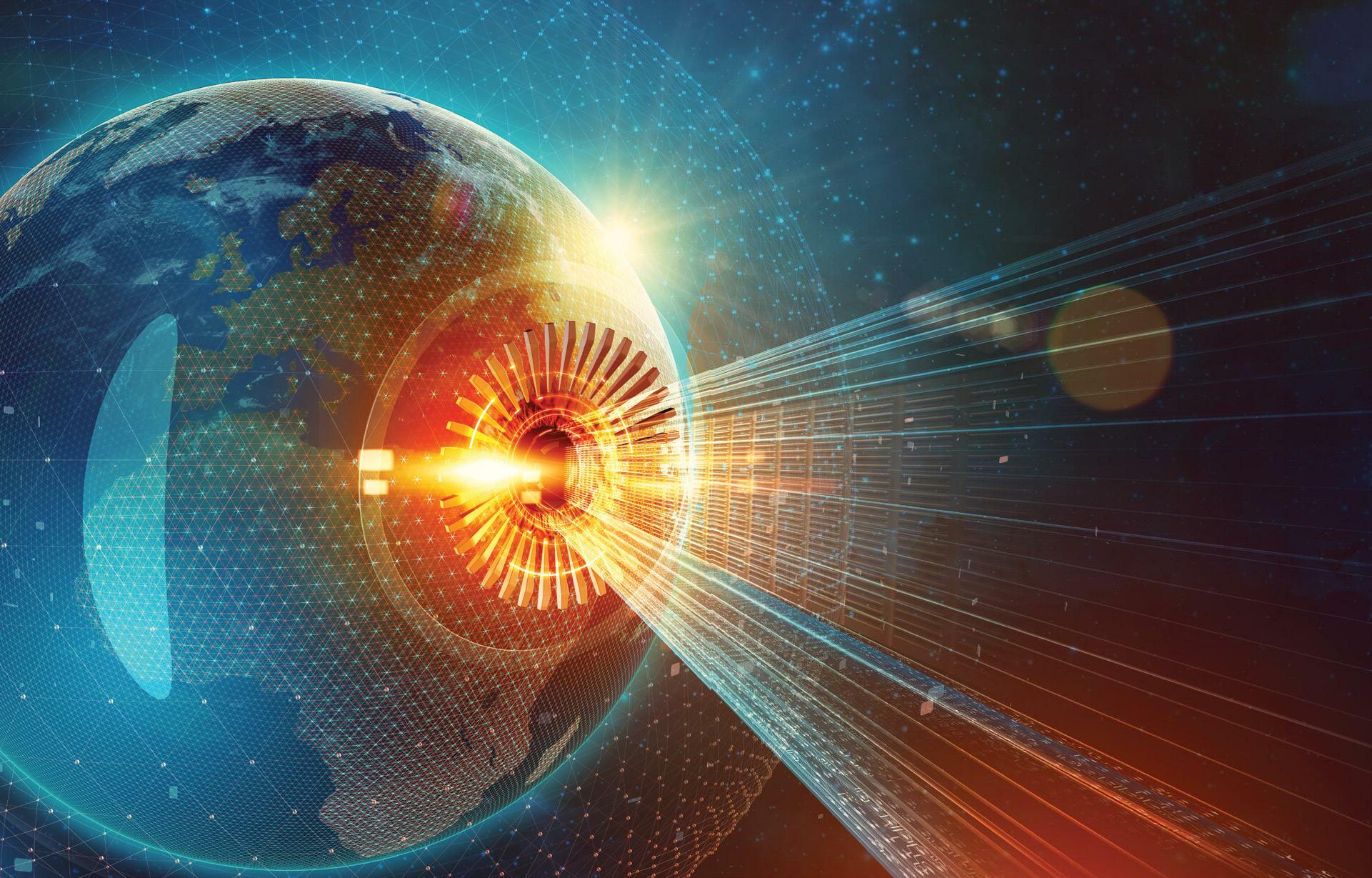
IS AI OUT OF CONTROL?
DR GARY MARCUS
Dr Gary Marcus is an emeritus professor of psychology and neural science at New York University and a leading voice in artificial intelligence.
Al can do impressive things, but even the experts say it poses a very real threat to us. So, should we put a hold on its development or is it already too late?
Many of the world's leading voices in artificial intelligence have begun to express fears about the technology. They include two of the so-called 'Godfathers of Al' - Dr Geoffrey Hinton and Prof Yoshua Bengio, who both played a significant role in its development.
Hinton shocked the Al world in May 2023 by quitting his role as one of Google's vice presidents and engineering fellows, citing his concerns about the risks the tech could pose to humanity through the spread of misinformation. He even said he harbours some degree of regret regarding his contributions to the field.
Similarly, Nobel Prize-winning computer scientist Bengio recently said that he has been surprised by the speed at which Al has evolved and felt 'lost' when looking back at his life's work.
Both have called for international regulations to enable us to keep tabs on the development of Al.
Unfortunately, due to the fast pace at which the tech develops and the opaque 'black box' nature around how much of it operates, it's much more difficult than it sounds.
Although the potential risks of generative Al, whether it's bad actors using it for cybercrime or the mass production of misinformation, have become increasingly obvious, what we should do about them has not. One idea seems to be gathering momentum, though: global Al governance.
This story is from the Issue 73 edition of Very Interesting.
Start your 7-day Magzter GOLD free trial to access thousands of curated premium stories, and 9,000+ magazines and newspapers.
Already a subscriber ? Sign In
This story is from the Issue 73 edition of Very Interesting.
Start your 7-day Magzter GOLD free trial to access thousands of curated premium stories, and 9,000+ magazines and newspapers.
Already a subscriber? Sign In

TAKE IT SLOW
Slow running is a fitness trend with some hard and fast science behind it

Physics, AI and music share a common thread. You just have to know where to look
Studying science can lead you in many directions and open doors to unexpected possibilities along the way

BED BUGS VS THE WORLD
When bloodthirsty bed bugs made headlines for infesting Paris Fashion Week in 2023, it shone a spotlight on a problem that's been making experts itch for decades: the arms race going on between bed bugs and humans

Kids are the key to understanding obesity. But we need more of their genes...
We can unravel the role that bodyweight plays in disease, but we need a bigger, more diverse, sample of genetic material to do so

COVID inquiry: What did we learn and what can we do better in future pandemics?
Masks, social distancing, lockdowns... how effective was the UK's response to the COVID-19 pandemic?

One hormone could be the key that unlocks a cure for morning sickness
The nausea and vomiting that, in extreme cases, can endanger mothers and babies might soon be just a memory

THE WORLD'S WEIRDEST CREATURES
Under the sea and upon the land, some animals look - to us - pretty strange...

WHEN MIND AND MACHINE COLLIDE
First, Elon Musk wanted to make electric cars ubiquitous, then he wanted to make space exploration a private enterprise. Now, with Neuralink, his newest venture, Musk hopes to merge humans and artificial intelligence. Turns out, it might not be such a crazy idea...

COME OUT OF YOUR SHELL
Social anxiety is more than just being shy. It's a phobia born out of our evolutionary past. But that raises a puzzling question: why do so many of us fear human interaction when we're supposed to be the most sociable species on the planet?

SPACE ODDITIES
Take a tour of the weirdest spots in the universe, where the 'normal' rules don't apply. Places that squeeze time, blow bubbles and even rain glass... sideways